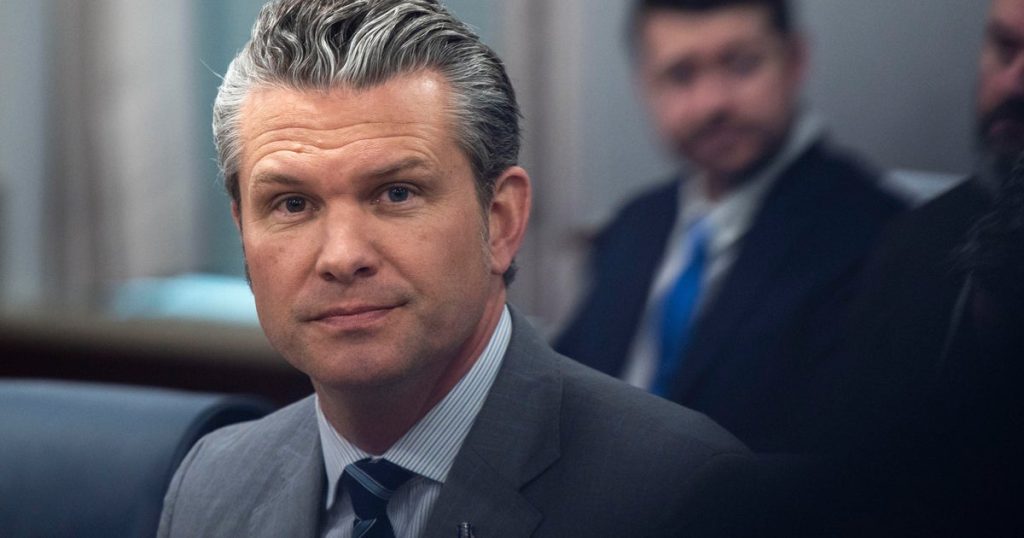The Pentagon has officially discontinued its requirement for civilian employees to submit weekly emails detailing five accomplishments, signaling the end of a controversial initiative under the Department of Government Efficiency (DOGE). This decision, confirmed by the Defense Department, comes as part of broader efforts to streamline operations and reduce waste within the agency. The initiative, inspired partly by input from prominent figures, was initially introduced to boost accountability and efficiency within the organization.
| Article Subheadings |
|---|
| 1) Overview of the Initiative |
| 2) Implications of Ending the Requirement |
| 3) Leadership’s Perspective |
| 4) Future Workforce Adjustments |
| 5) Conclusion and Summary of Findings |
Overview of the Initiative
The initiative requiring Pentagon civilian employees to email their supervisors weekly with five accomplishments was conceived as a means to enhance transparency and accountability within the Defense Department. This policy was championed by the Department of Government Efficiency in early 2023, aiming to streamline operations by gathering data regarding employee contributions. The objective was to ensure that leaders had a clearer understanding of productivity levels and to identify redundancies or wasteful practices across the department.
The new requirement was perceived as a pulse check, enabling management to assess the engagement and performance of civilian employees. While some advocated for its potential to foster greater communication between employees and supervisors, others criticized it for being overly burdensome. As part of the initiative’s rollout, employees received emails that explicitly asked, “What did you do last week?” to prompt reflections on performance.
Implications of Ending the Requirement
The Defense Department’s decision to end the weekly email requirement represents a significant shift in employee-management dynamics. This outcome can be seen as a response to employee feedback and growing concerns about workload and anxiety associated with the initiative. While the initial feedback gave rise to the program, the eventual halting indicates recognition of the operational strain it placed on civilian workers within the department.
By concluding this initiative, officials aim to refocus on more effective strategies for enhancing performance and identifying areas of waste. Employees were instructed to send a final email encapsulating one specific recommendation for potential cuts or efficiencies within the Pentagon. This shift toward soliciting direct input on cost-saving measures could engender a more collaborative atmosphere and reinforce trust in leadership.
Leadership’s Perspective
Reflecting on the initiative’s impact, chief Pentagon spokesperson, Sean Parnell, emphasized its role in providing leaders with insights into employee contributions. He stated, “This initiative provided leaders and supervisors with additional insights into their employees’ contributions, fostered accountability, and helped to identify opportunities for greater efficiency and effectiveness throughout the Department.” This perspective acknowledges the initial goals of the initiative while also adapting to the realities of employee experiences.
Moreover, during a video address to civilian staff, Defense Secretary Pete Hegseth further reiterated the program’s purpose. He indicated that it served as a simple check-in, suggesting it was fundamentally about gauging employee engagement. However, as the program evolved and feedback was considered, it became clear that a reevaluation of its implementation was necessary. The mixed reception to the program highlighted a crucial divergence in the perception of efficiency drives versus employee well-being.
Future Workforce Adjustments
The termination of the email requirement coincides with broader workforce restructuring efforts within the Defense Department. Earlier this year, the Pentagon announced plans to reduce its civilian workforce by 5% to 8%. Given that the department employs over 900,000 civilians, this could lead to the departure of approximately 50,000 employees over the coming years. Such significant cuts raise pressing questions about operational readiness and the ensuing impact on overall missions.
As part of ongoing reorganization, the Defense Department is implementing the Deferred Resignation Program, allowing employees the option to resign later this year. Officials are currently assessing how many employees may opt to leave and are working through the logistics of managing resignations, particularly concerning mission-critical personnel who are essential for maintaining operational effectiveness.
Conclusion and Summary of Findings
The recent decision to cease the email initiative represents a conscious response to employee feedback and broader workforce management strategies within the Pentagon. While the intent of the original policy was to boost transparency and accountability, the apparent discontent among civilian employees led to a necessary reevaluation of its efficacy. As the Department of Defense continues to navigate through significant workforce changes, fostering an environment that balances productivity and job satisfaction will be pivotal.
| No. | Key Points |
|---|---|
| 1 | The Pentagon has ended its weekly email requirement for civilian employees. |
| 2 | The initiative aimed to enhance accountability and streamline operations. |
| 3 | Employee feedback highlighted concerns about workload and stress. |
| 4 | Future workforce reductions could see up to 50,000 civilian job losses. |
| 5 | The Defense Department is focusing on more collaborative strategies moving forward. |
Summary
The Pentagon’s decision to wind down the weekly accomplishment email initiative illustrates a significant shift in approach towards employee management. As the department undertakes substantial workforce reductions, it faces the challenge of maintaining efficiency while also ensuring that morale and job satisfaction among civilians remain intact. This development underscores the importance of adapting leadership strategies to better align with employee needs in a rapidly changing operational environment.
Frequently Asked Questions
Question: What prompted the Pentagon to end the email initiative?
The initiative was ended after employee feedback indicated concerns about workload and stress related to the weekly requirement.
Question: What are the expected workforce reductions within the Pentagon?
The Pentagon is planning to cut civilian positions by 5-8%, potentially resulting in the loss of approximately 50,000 jobs.
Question: What alternative measures are being considered by the Department of Defense?
The Department of Defense is focusing on collaborative strategies that encourage employee input on potential cuts and efficiencies, rather than imposing rigid requirements.
